I’ve been living in Seaford, East Sussex, for over 3 years now, and to my embarrassment I still have boxes in the studio unpacked since moving. Spurred on by a clear out of the garage as a part of a refurbishment of the ground floor of the house, I decided it was time to empty the boxes. I admit it is also a part of putting my affairs in order after passing my 70th and dealing with cancer. I don’t intend to ‘go quietly into the night’ but whilst relishing living another umpteen years, I do want everything to be in order – just in case.
My gift of my art collection to the Towner Art Gallery in Eastbourne was a part of this preparation, but leaving things in order is driven in part by wanting to protect my partner from worry. One remaining concern now is what to do with my photographic archive. One large box in my studio is full of negatives, going back over 70 years. 120 film from my father’s box brownie and from my early cameras, 35mm roll film from my film cameras, hundreds of slides and then negatives from surveys of hotels in the 1980’s. All need to be scanned, considered and then dumped or archived.
Scanned images will be archived to the server of photographs from the work I did on HotelDesigns – over 300 hotels photographed, each generating an average of one hundred images. Will anyone be interested in this server and archive as a history of design? I welcome suggestions as to who might like it.
I am not the first in my family to have a camera as it seems from all the negatives he left in a biscuit tin that my father was also keen to record things, at least in early years. Some of the locations are easily pinned down, such as the images from the RAF base in Aden in 1949/50, in what is now the Yemen, as they include photos of me as a child and my sister as a new-born. Other earlier images can only be dated by comparing locations with his RAF service record, but include the wartime Western Desert. Unfortunately, the photocopy of his RAF record the air force sent me was of such poor quality that it is difficult to assort out locations.
Incidentally, my sisters experience is testimony to the incompetence of the British as administrators as well as with a photocopier. When she made a passport application at age 18, the Home office saw place of birth as Aden and sent two ‘civil servants’ around to organise her deportation as an illegal alien, as they had no record of her arrival being registered when we arrived back in the UK on a troopship. We quickly found (on the web) the disembarkation record from the troopship at Southampton which the ‘civil servants’ could have done if they had half a brain between them, saving both her and my parents some angst.
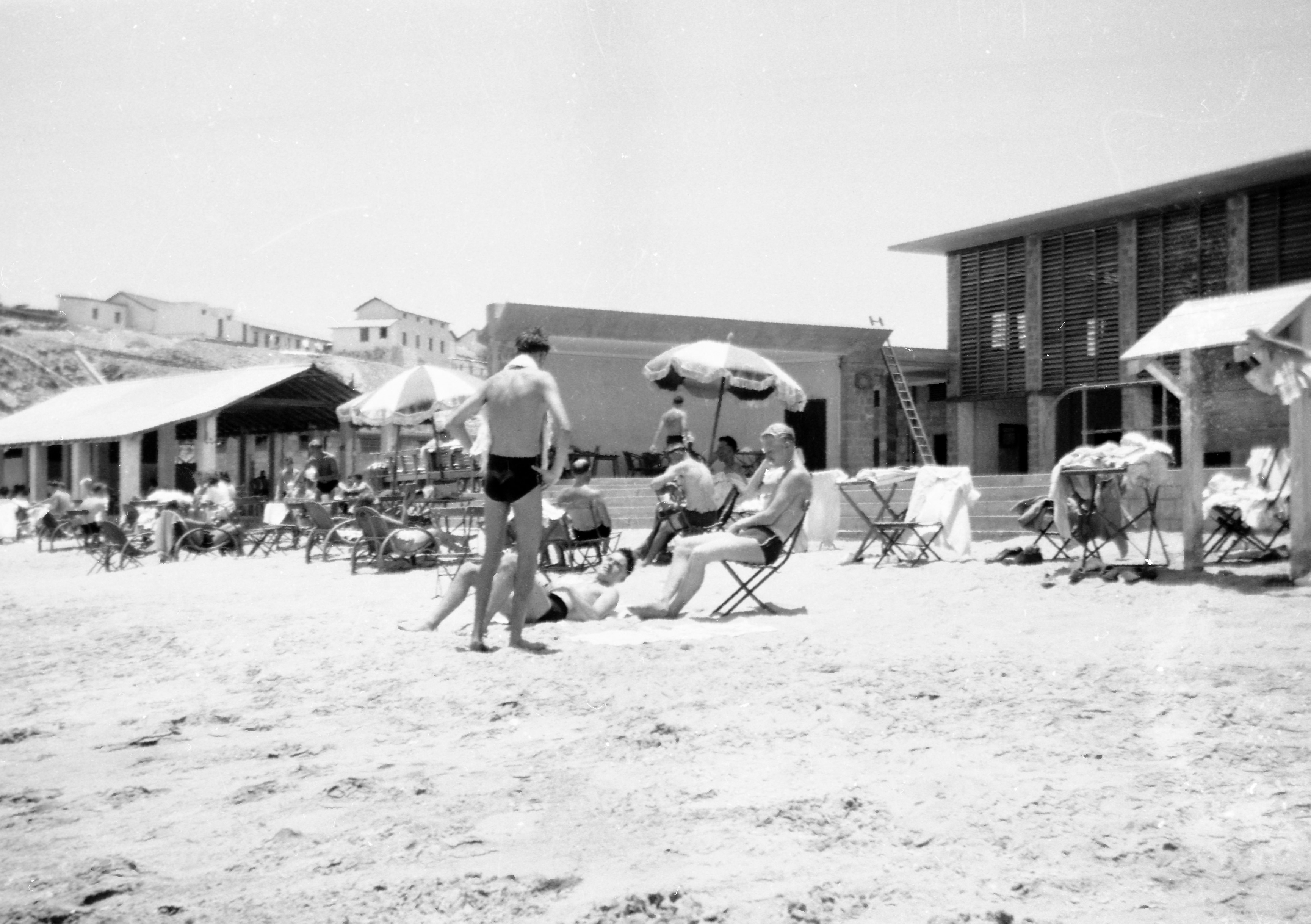
Life is a beach – service personnel at the base in Aden, South Yemen, 1950, then a British ‘protectorate’.
To this day that name ‘civil servant’ seems to be such a misnomer, as they are usually neither civil nor serve the people well, as resident wives of 27 years marriage to Englishmen can testify as they are deported to Singapore/Canada etc.. Seems the British ‘upper classes’ (most seem products of a lamentably poor education in ‘public’ schools and Oxbridge) are totally unable to manage their way out of a brown paper bag (see Hull etc.)
Born into a Britain still suffering rationing, the photographs pulled up memories from my childhood. I remember the 1950’s as a black and white decade, with colour taking off for me in the early 1960’s when I went to live in Cyprus for three years, its bright bleached out colour contrasting strongly with the glorious greens of England on return. The fifties were rationing, potato shortages, coal fires, ice on the inside of single glazed windows, school milk, hospitals, Rock Around the Clock, my uncles Henty books, Huck Finn, the Eagle, the Lion comic with its cutaways of marvellous machines like steam trains.
I remember sweet rationing ending in 1956, and taking my first ha’penny pocket money into a sweet shop and buying a farthing gob stopper and using the other farthing to buy two aniseed balls. Did you know the British were healthier under rationing than any time since? No fat people in the photographs – sorry fat is not pc now is it, should I say overweight? How lean and muscular my father was, how slim my mother in the 1950’s as living on the 1600 – 1800 calories a day that rationing allowed kept them healthy. Maybe we should reintroduce rationing today to deal with the growing national obesity crisis?
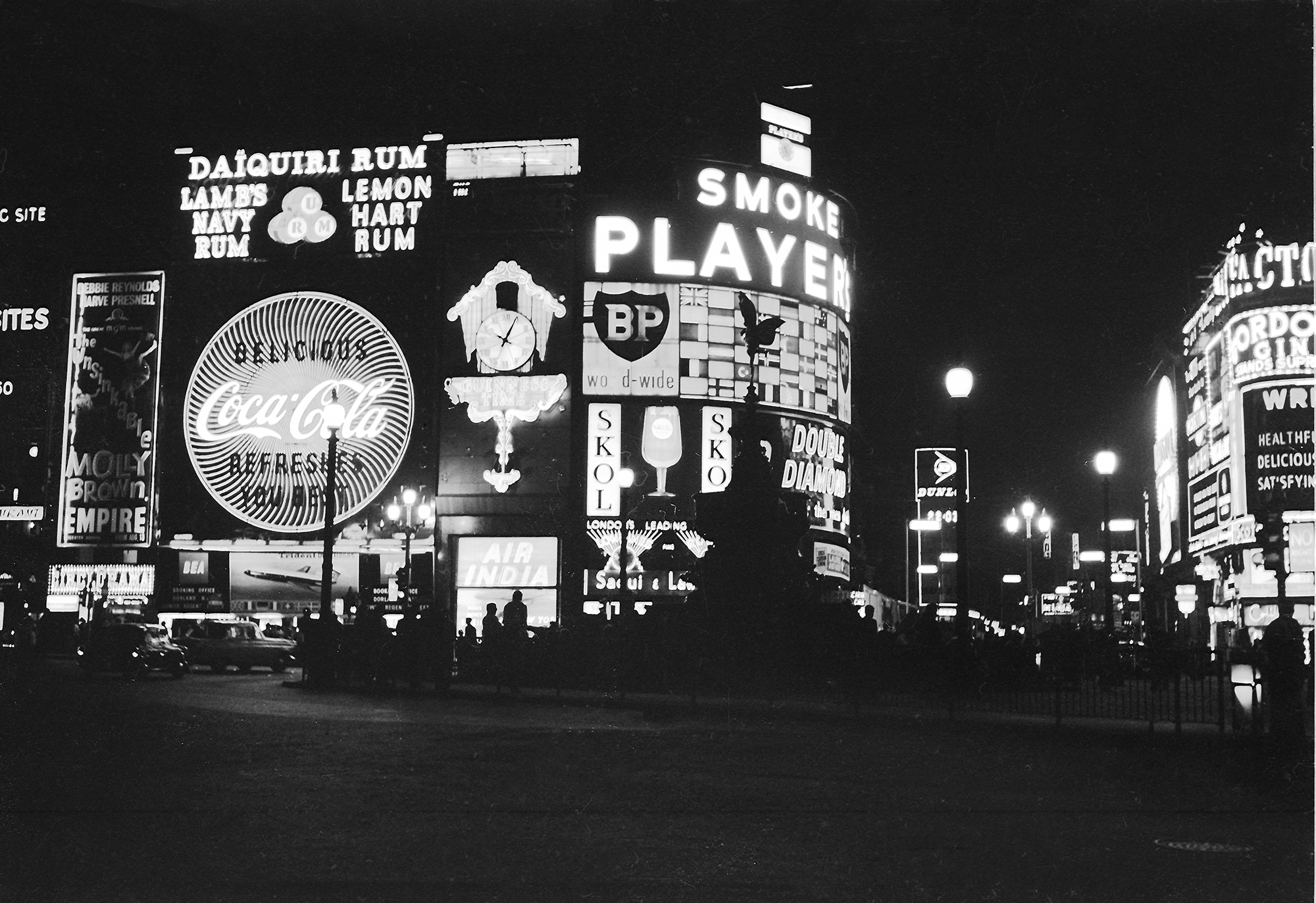
Healthy 1964 – Piccadilly advertises fags and Coca-Cola – sugar and nicotine evils of the 21st century?
Scanning the images has been laborious, from box to scanner, to waste basket. Scanned at 1200dpi and leaving them to be adjusted in Photoshop if required has eaten up time, but with the builders blocking access to the studio the job kept me busy. A necessary housekeeping exercise became a journey through the past, not just my past but the past of Britain. My father’s images go back to his career in the Air Force and include some images of his service in the Western Desert as a medic before he remustered to become a rear gunner in Wellingtons, Sunderlands and Lancasters. He was obviously proud of his family, as I am of him. He died too young more than 20 years ago, yet I still miss him greatly. My mother also died too young before him, both taken by cancer. Followers of this blog will know of my own battle with the disease, and my chances of many years yet are considerably better than theirs were after diagnosis.
My parents’ generation fought to keep our country free of diktat from abroad, and to establish the now crumbling ‘cradle to grave’ ethos of the National Health System. The selfish ‘me first’ of our children’s generation threatens to destroy what my parent’s generation gave their lives to build and my generation our working lives and our taxes. We cannot allow this to fail. We must ditch this current obsession with what has been labelled recently ‘virtue signalling’ and put the wellbeing of the British citizen first, before an apparent determination to become the world’s biggest donor of foreign aid. Carved in stone over the old 1920’s Labour HQ in Walworth Road, South London was the motto (I paraphrase perhaps) ‘there is no higher priority than the health of the people’. That kind of concern needs to rise to the top again.
Both of my parent’s sides of the family came from farming backgrounds. Our family story reflects the changes through a century. Both sides tell of how. The boys helped with milking and taking churns of milk to the rail station before going off to school; this was a daily task. My father, brought up as a native Welsh speaker, tells how the horse though it a great joke to stand on his foot as he helped harness it to the cart, pinning him in place until rescued. He went on to become an RAF male nursing orderly and spent his lifetime in health services, military and civil.
Their generation made the opportunities for me, their votes changed the country for the better, making me the first in the family to have a University education, enabling an NHS to save my life several times over. They would be despairing of a political class that allows health and defence to crumble whilst engaging in spending billions on foreign aid in a form of national ‘virtue signalling’.
We owe to their sacrifice and their memory an obligation to create a better Britain. We need to remind the Westminster village that this means for all Britons, not just for their own selfish enrichment, nor for their upper class ex-public schoolboy friends who have screwed the pooch so effectively over the years.
Follow my work in the studio on Facebook
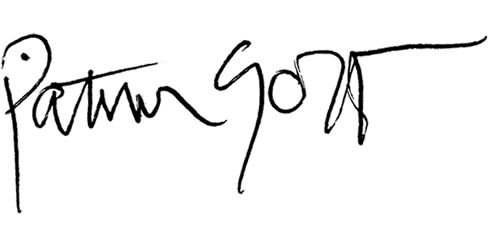
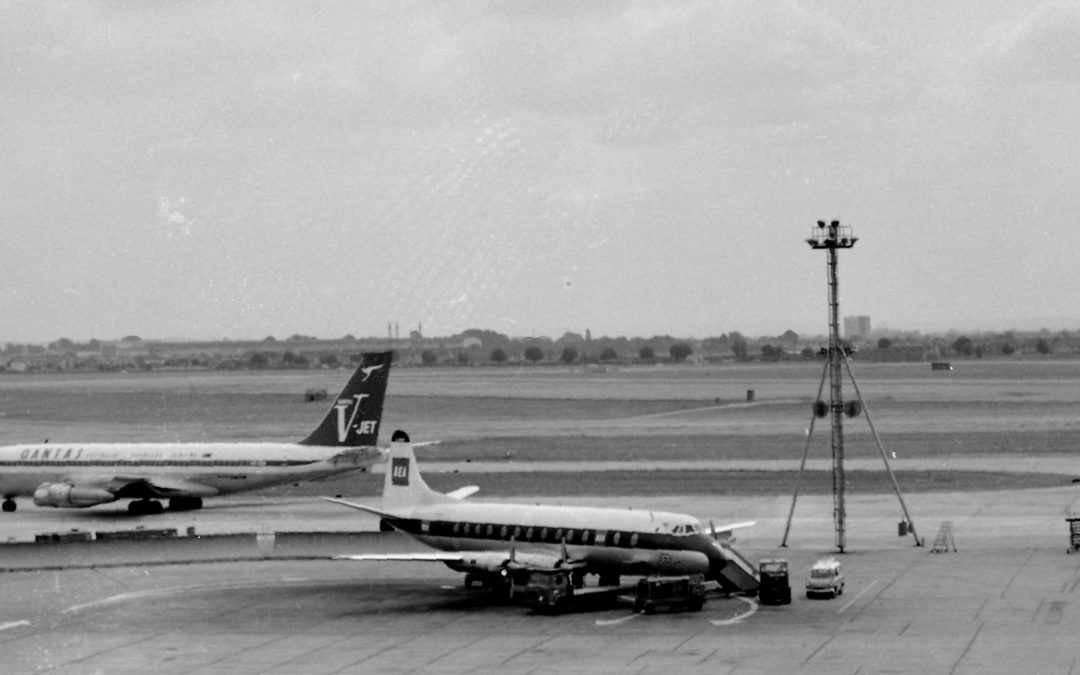
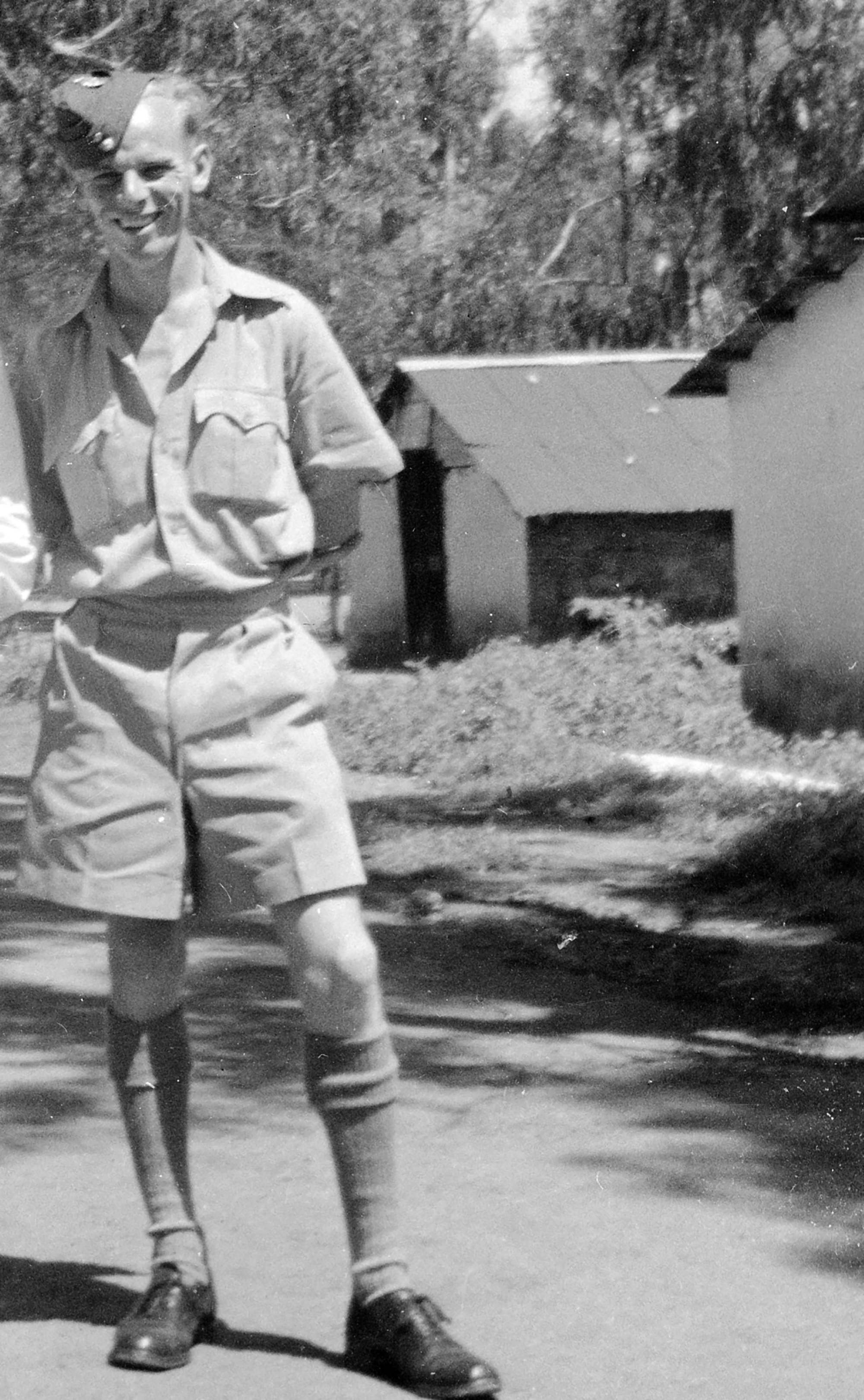
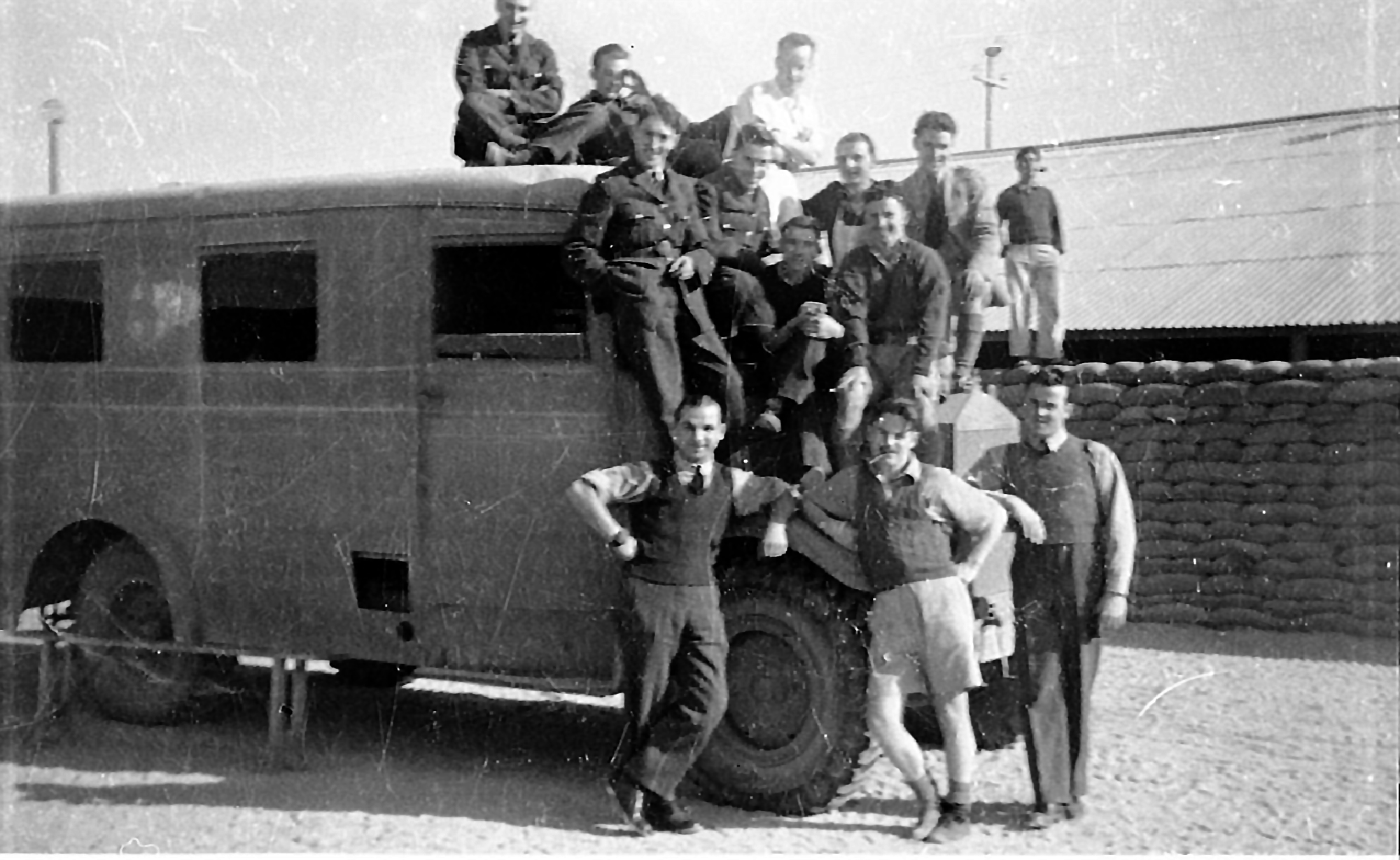


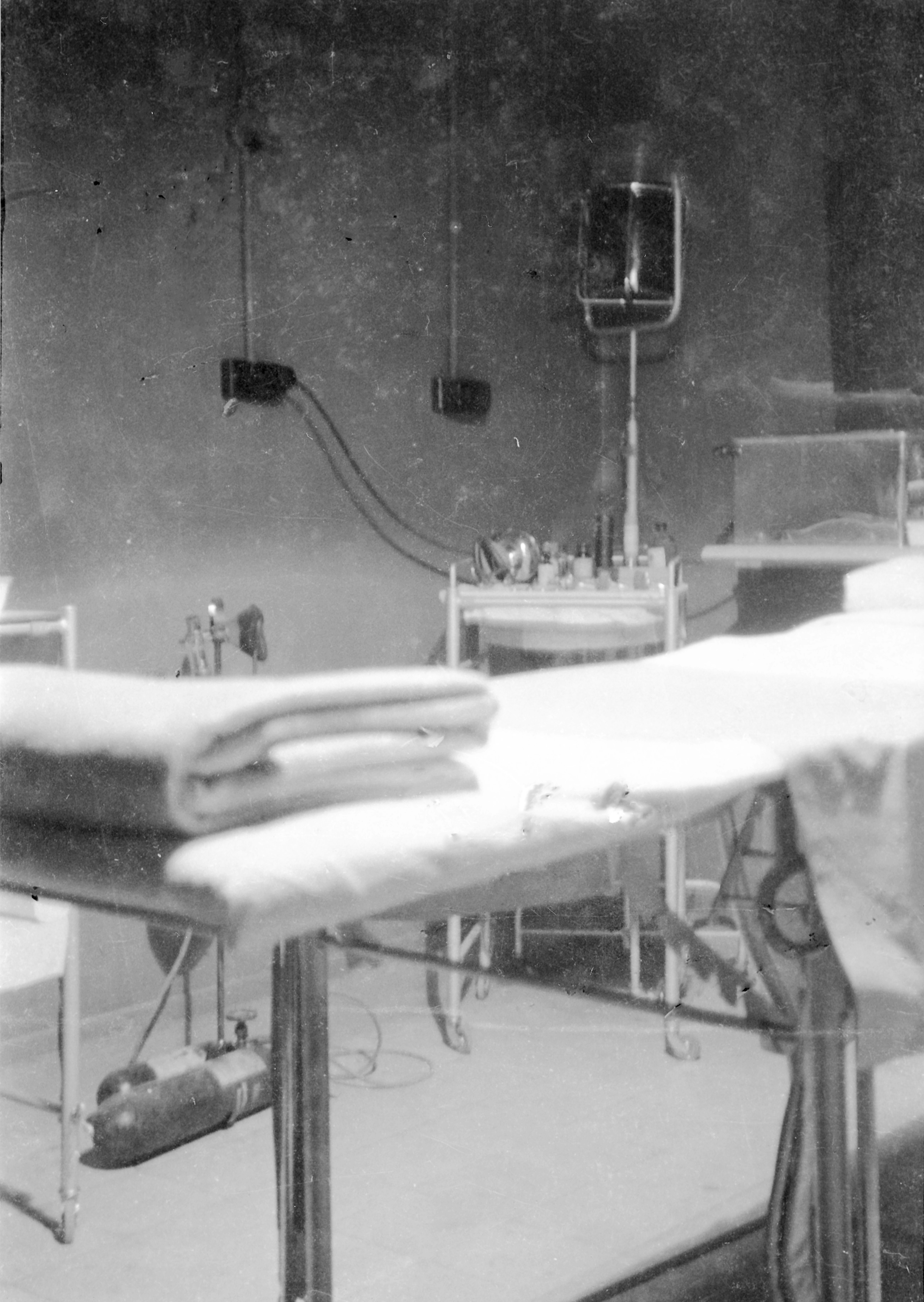
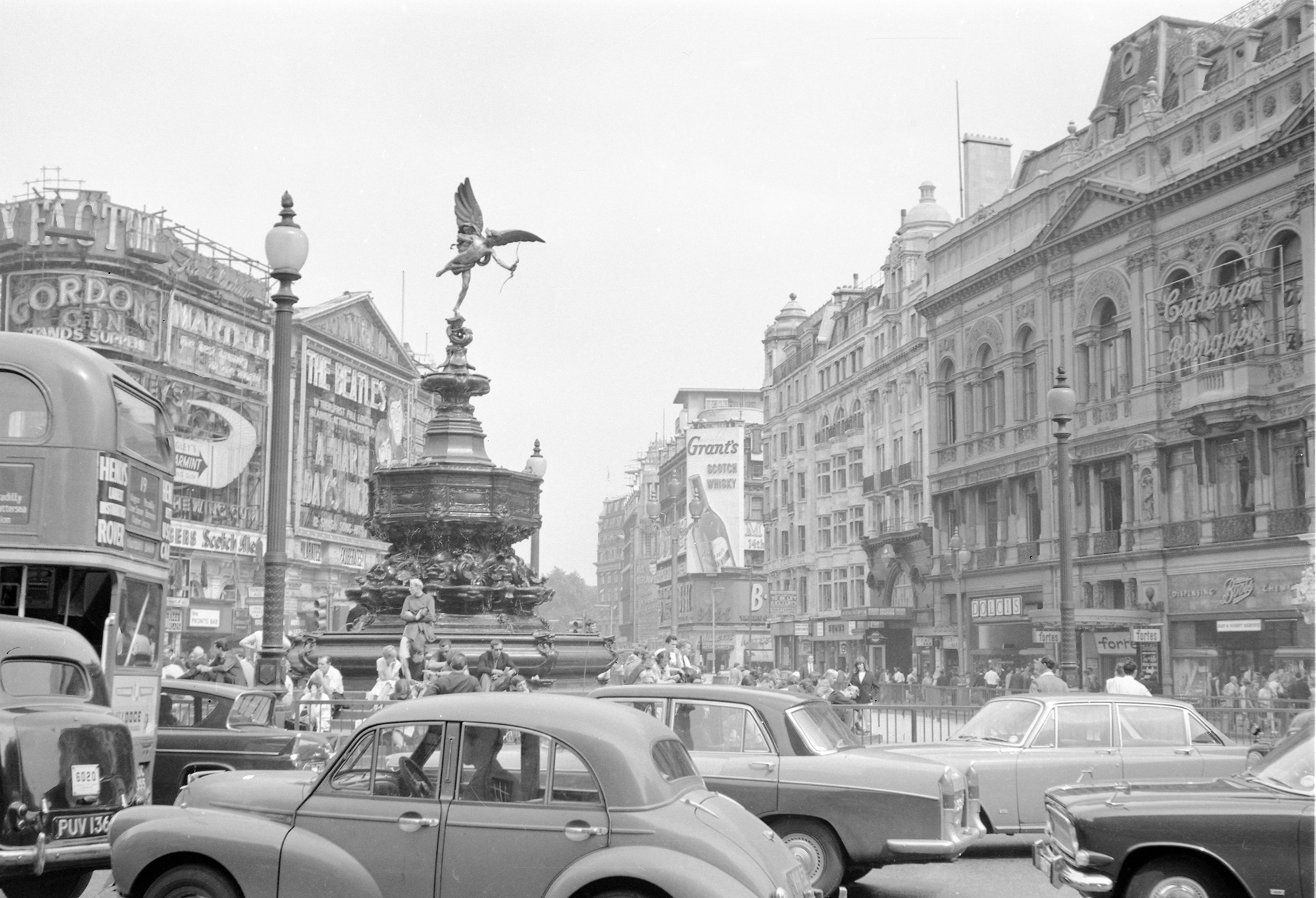
Fascinating history Patrick!
Thanks for sharing
Love your archive photographs! Wish my family had kept this many images. Much of my work time is spent looking, for, digitising and adjusting old photos (for Morley College’s Archive) so I sympathise.
So good to hear that you are engaged on projects new. Look forward to more!